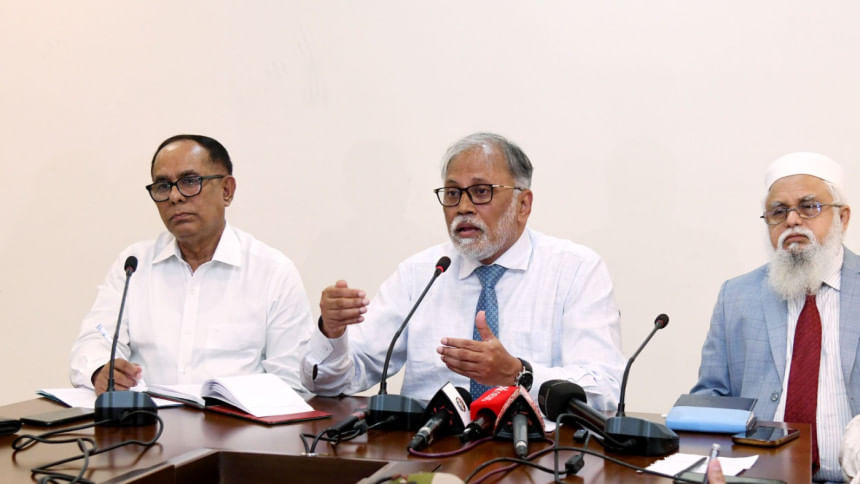Govt to fix prices of essential medical tests

In a bid to reduce people's out-of-pocket healthcare expenses, the government is going to prepare a list of essential diagnostic tests and fix their prices.
The health ministry has already sought technical support from the World Health Organisation (WHO) in this regard, said Prof Sayedur Rahman, special assistant to the chief adviser for the health ministry.
He disclosed this at a views-exchange meeting on "Role of Mass Media in Health Services" at Shaheed Abu Sayed International Convention Center in Dhaka yesterday. Senior ministry officials, its agencies, and journalists attended the event.
The move to fix the test prices comes amid allegations that patients are often prescribed unnecessary tests and forced to pay widely varying prices, causing immense hardship.
Sayedur said people in Bangladesh spend 64-67 percent of their healthcare costs on medicines and another 11-12 percent on diagnostic tests. "Therefore, the government needs to intervene in these two sectors to reduce people's burden and prevent them from falling into poverty," he said.
He added that a taskforce has already been formed to prepare a list of essential medicines and a mechanism to regulate their prices.
During a recent meeting with WHO, the ministry formally sought support to draw up a similar list for diagnostics.
"At first we will prepare the list of essential medicines, then the list of essential diagnostics, and finally move towards fixing their prices," he said, noting that the rates may be set in two or three categories.
Sayedur also said the government will soon introduce digital monitoring of medical equipment to ensure timely maintenance. In the first phase, 300 pieces of equipment from 114 hospitals will be brought under the system by December.
Replying to queries, he cautioned people against relying on medical advice from Google or Artificial Intelligence. He also said publicity of medicines is prohibited and the government would soon take visible action on this.
On BNP Secretary General Mirza Fakhrul Islam Alamgir's criticism of the interim government's handling of the pharma sector, Sayedur said he believed it was Fakhrul's personal remark. "We are working for the people's interest and will continue to do it," he said.
On August 13, Fakhrul voiced concern over potential risks in the pharmaceutical sector and urged the government to safeguard it through transparent and inclusive policies.
Health Services Secretary Saidur Rahman said they were ensuring transparency in the recruitment and posting of doctors and nurses. "We have taken it as a challenge," he said.
Prof Abu Jafor, director general of the Directorate General of Health Services, said the government has decided to move away from decades-old sectoral programmes that lacked transparency, which has disrupted some services. "We are working to solve those problems," he said.

 For all latest news, follow The Daily Star's Google News channel.
For all latest news, follow The Daily Star's Google News channel. 






Comments